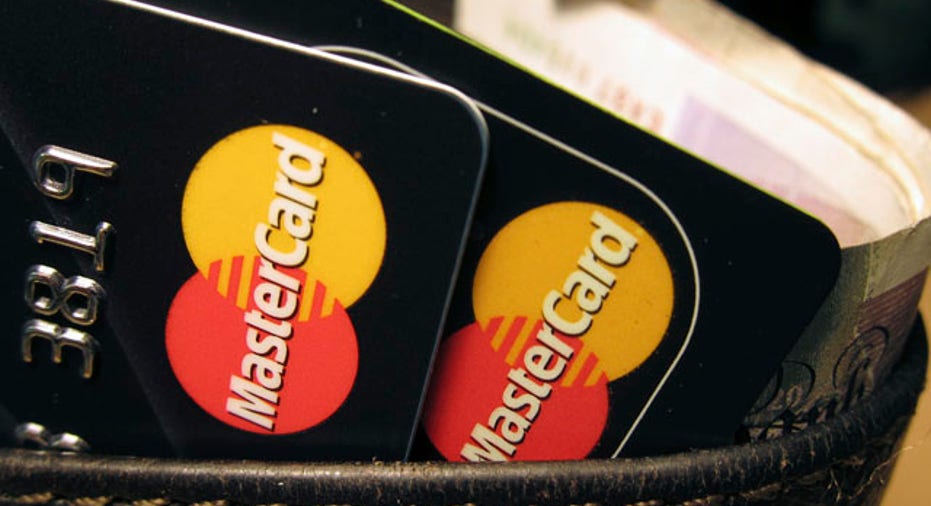Eight Tips for Better Credit and Better Health

Do you wish you and your family had leaner bodies and fatter wallets?
You might think accomplishing either one of those would involve a lot of grueling work, but that's not always the case. The good news is that making some simple changes in your life can improve both your physical and financial health. Here are some ideas to get you started.
8 small steps toward big results
- Earn cash back on everyday expenses. Pay all of your bills using a rewards credit card, and be sure to pay off your card each month. Some cards even pay bonus rewards for paying on time. Then cash in your rewards toward personal fitness equipment or services, anything from workout clothes to a jump rope to a racquetball or tennis club membership, whatever you enjoy and will motivate you to be more active. "You're developing better credit, paying off your bills each month and getting the rewards," says Rocco Castellano, Las Vegas-based fitness expert and personality, business coach and author.
- Leave your car at home. If you live within a short distance of your workplace, ride a bike or even walk to work instead of driving. Use the money you save on gas and maintenance to pay down any credit card debt. If you're debt free, save or invest it. "We were out of debt in two and a half years and my husband got really buff," said Ellie Kay, who, with her husband, got rid of their second car. Kay is "America's family finance expert®" and author of 14 books, including "The 60 Minute Money Workout."
- Avoid sinking cash into unnecessary equipment. You don't have to buy that treadmill, elliptical machine, stair stepper or stationary bike that you have ideas about using in your new exercise plan. Instead, repurpose that budget item to go on a vacation (putting airfare and lodging costs to your rewards credit card, of course). While you're away, rest, play and improve your well-being. "Go run on the beach of Waikiki instead," Castellano says.
- Ditch high interest payments. Transfer an old credit card balance to a new low APR credit card for as long a period as you can qualify for. Then while you're paying down the principal, use the money you're saving on interest for fitness boot camps; dance, yoga or aerobics classes; or a health or swim club membership.
- Turn off the TV. Cancel part (or all if you're more motivated) of your cable television subscription and use the money you save to entertain yourself and your family in less sedentary ways. Maybe shoot some hoops, go for walks or hikes on the local nature trails, or participate in some of the free or low-cost fitness and health offerings through your city's parks and recreation department.
- Rethink the gym membership. If you find yourself paying for a gym membership you never use, consider canceling it and instead make a point of regularly going outside and doing something fun, anything from hiking or kayaking in summer to skiing or snowshoeing in winter. "Activity should be an enhancement to your life, not a chore," Castellano says.
- Cook once, eat twice. An economical twist on cooking and eating at home versus dining out is to "cook once, eat twice," Kay says. When you cook a meal, make double and freeze one for later. Or enjoy the leftovers the next day. You not only save time, but also energy use and the associated cost. "The more that you can do ahead of time, the less likely you are to eat or take out and, therefore, exceed your food budget," Kay adds.
- Use doggy bags. When eating out, order one meal and split it with a friend or significant other. Or eat half your meal and take the rest home for lunch the next day. You save money and control your portion at the same time. "Most of these American-sized portions are double what the U.S. Department of Agriculture says we need," Kay says.
How to get started
How do you get started? Define clear goals that make sense for both your health and your finances. For example, if you live close to your work but you have bad credit, bike to work one or two days a week, then put the money you save on a secured credit card and make routine purchases with that to help rebuild your credit.
Use whichever ideas appeal to you most to achieve both your goals. Start with small steps. Follow your plan. When you meet one of your goals, be sure to celebrate your accomplishment in some small way.
"Feel good about what you've done and reward yourself accordingly," Castellano says.
The original article can be found at CardRatings.com:8 tips for better credit and better health



















